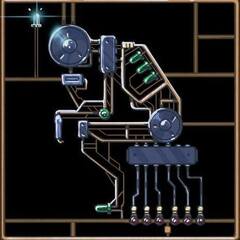Intel 18c HEDT Die Pictured, Not Soldered (7980XE)
-
Topics
-
Shadeamous ·
Posted in Networking0 -
0
-
sturedoc ·
Posted in Cases and Mods0 -
3
-
TurboTrym ·
Posted in Troubleshooting2 -
2
-
brutalness ·
Posted in LTTStore.com Merch3 -
2
-
2
-
Berries ·
Posted in Graphics Cards2
-
-
play_circle_filled

Latest From Linus Tech Tips:
AMD Is Copying The Worst Thing About Intel - WAN Show May 31, 2024













Create an account or sign in to comment
You need to be a member in order to leave a comment
Create an account
Sign up for a new account in our community. It's easy!
Register a new accountSign in
Already have an account? Sign in here.
Sign In Now